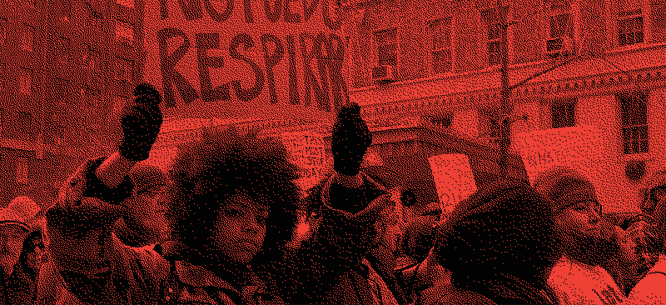Introducing Our Summer Issue: American Movements
Introducing Our Summer Issue: American Movements
What are the visions and complaints, accomplishments and limits of the largest and most important movements on the left today?

One underappreciated paradox of a liberal presidency is that its shortcomings often inspire mass, creative action by critics on its left. During the mid-1930s, radicals led an industrial strike wave that compelled a reluctant Franklin D. Roosevelt to support the National Labor Relations Act. Three decades later, mass acts of nonviolent civil disobedience persuaded John Kennedy to propose a civil rights law he had feared, correctly, would drive white Southerners toward the Republican Party. In each case, movements from below put sustained pressure on powerful men to back up their talk with action.
Today, Black Lives Matter is the most dynamic of several peaceful insurgencies that are trying to close the gap between Barack Obama’s rhetoric of change and his failures to deliver. Liberal Democrats are, it should be acknowledged, far weaker than in the White House days of FDR and JFK. But that is no reason to make excuses or wallow in cynicism. Only smart, determined challenges to one’s powerful, putative friends as well as one’s sworn adversaries have ever made durable progress for ordinary Americans.
The articles in this special section examine the visions and complaints, the accomplishments and the limits of several of the largest and most important of the current movements on the left. Two of them—the drive for black freedom and that for decent pay and conditions on the job—have been around since the early days of the republic. But their advocates are taking fresh approaches to battle both new and old injustices. As our authors show, union teachers are negotiating both with and for the parents of their students, and African-American women are leading the new civil rights movement while making clear that men are not the sole victims of police brutality. The movement against fracking—like the grander effort to stop climate change—began only in this century. Yet it is already a major presence in the United States and at least half a dozen other countries. Our nation could also use a large and vigorous antiwar movement. But, for the time being, most Americans on the left are more concerned with protesting and attempting to change how they are governed at home than about the ends and means of the military forces deployed in their name and outside their borders.
None of the movements described in this issue has yet enjoyed a triumph akin to those of the CIO during the Great Depression or the black freedom movement of the 1960s. But, on the streets, online, and in daily conversations, they have already proved that they matter. And that is a necessary beginning.
Michael Kazin is co-editor of Dissent.




